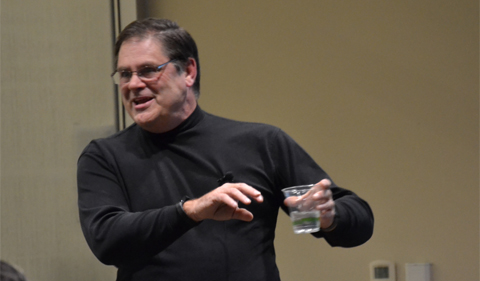
Environmental & Plant Biology professor Dr. Allan Showalter presenting his research at the MCB retreat.
By Amanda Biederman
NQPI editorial intern
Two Nanoscale and Quantum Phenomena Institute members, Environmental & Plant Biology professor Dr. Allan Showalter and Chemical and Biomolecular Engineering professor Dr. Amir Farnoud, both presented their research at the Molecular and Cellular Biology retreat on Nov. 10.
MCB is an interdisciplinary program that encompasses the departments of Biological Sciences, Biomedical Sciences, Chemistry & Biochemistry, and Environmental & Plant Biology. The MCB retreat, which is held annually on the Ohio University main campus, featured student and faculty talks, a student poster session, and a keynote lecture by University of North Carolina at Chapel Hill professor Dr. Kevin Weeks.
Showalter, as the 2017 awardee of the John J. Kopchick Faculty Support Fund, gave a special lecture titled, “Cancer and Diabetes Drug Discovery from Medicinal Plants in Pakistan.” In his talk, Showalter detailed the process of DNA barcoding and explained how this technique can be used to identify plant species with potential medicinal properties. He then went on to explain how his research team is producing and testing extracts from plants for anti-cancer and anti-diabetes activities.
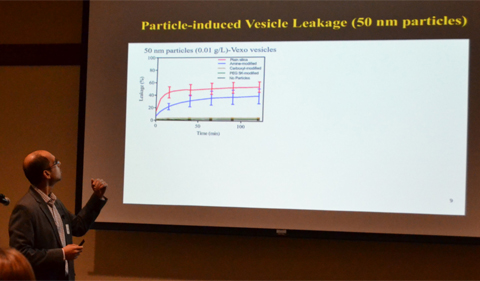
Chemical and Biomolecular Engineering professor Dr. Amir Farnoud presenting his research at the MCB retreat.
Farnoud also presented a talk titled, “Interactions of Engineered Nanoparticles with the Cell Plasma Membrane.” He discussed how membranes with different lipid compositions differ in their vulnerability to perturbation by nanoparticles, which offers insight into how nanoparticles may alter the structure and function of cellular membranes in living organisms.
In addition, two of Showalter’s graduate students, Dasmeet Kaur and Yuan Zhang, presented posters on their research during the retreat. Kaur and Zhang both study different aspects of arabinogalactan proteins (AGPs), which are proteins found in the cell walls of plants that are important to many cellular processes. They both study galactosyltransferases, which are enzymes that are critical in AGP biosynthesis.
Kaur presented her work on a reverse genetic approach in studying the function of AGPs. For her research she created knockout mutant organisms to manipulate to expression of different galactosyltransferases. This helped her to demonstrate how these AGPs play a role in cellular function.
“(AGPs), which are really important in cell growth, signaling, and all the processes in the cell,” Kaur said. “We are trying to look at how these proteins help in all the processes in the cell.”
Zhang, who was recently awarded an NQPI graduate student fellowship, presented her work with the CRISPR/Cas9 gene-editing approach to create mutant organisms more efficiently. Zhang also presented a short talk during the retreat to promote her poster.
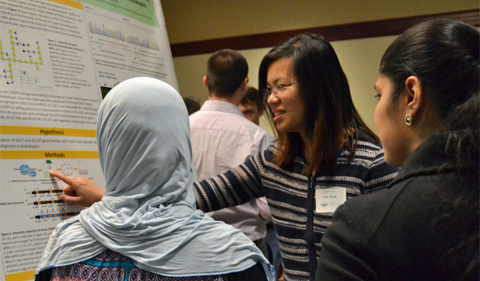
Doctoral student Yuan Zhang presenting her research to MCB graduate students Sazan Ismael and Dasmeet Kaur.
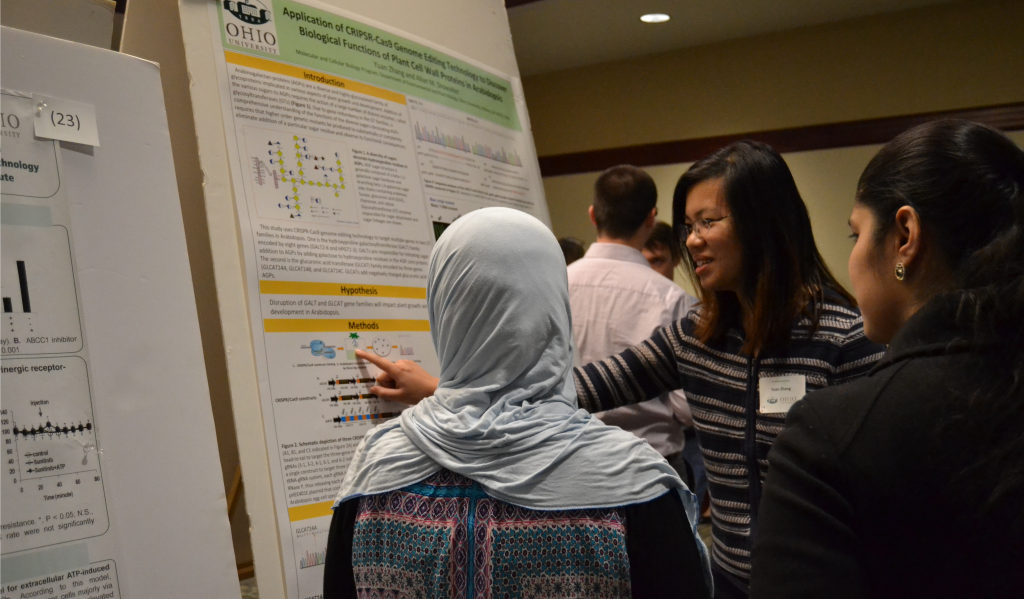
Doctoral student Yuang Zhang presenting her research to MCB graduate students Sazan Ismael and Dasmeet Kaur.
“I use the CRISPR/Cas9 approach to learn about the function of the sugar added onto the AGPs,” Zhang said. “We know that there are multiple genes working. This approach can help us understand redundant gene families.”


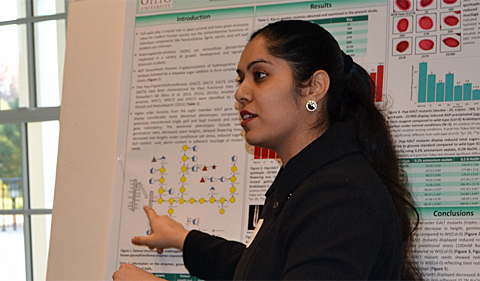

















Comments